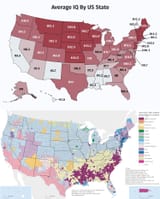>>514880503
consider what wagner writes about german homesickness, one wonders: who are those german americans then who could forsake their fathers soil to live amongst poles & italians in a far-away unknown territory? not lesser germans but certainly different ones.
“Deutsche” is the title given to those Germanic races which, upon their natal soil, retained their speech and customs. Even from lovely Italy the German yearns back to his homeland. Hence he quits the Romish Kaiser, and cleaves the closer and the trustier to his native Prince. In rugged woods, throughout the lengthy winter, by the warm hearth-fire of his turret-chamber soaring high into the clouds, for generations he keeps green the deeds of his forefathers; the myths of native gods he weaves into an endless web of sagas. He wards not off the influences incoming from abroad; he loves to journey and to look; but, full of the strange impressions, he longs to reproduce them; he therefore turns his steps toward home, for he knows that here alone will he be understood: here, by his homely hearth, he tells what he has seen and gone through there outside. Romanic, Gaelic (wälische), French books and legends he transposes for himself, and whilst the Latins, Gaels and French know nothing of him, he keenly studies all their ways. But his is no mere idle gaping at the Foreign, as such, as purely foreign; he wills to understand it “Germanly.” He renders the foreign poem into German, to gain an inner knowledge of its content. Herewith he strips the Foreign of its accidentals, its externals, of all that to him is unintelligible, and makes good the loss by adding just so much of his own externals and accidentals as it needs to set the foreign object plain and undefaced before him. In these his natural endeavours he makes the foreign exploit yield to him a picture of its purelyhuman motives.
Richard Wagner, What is German? (1865/1878)
https://ghdi.ghi-dc.org/pdf/eng/324_Wagner_What%20is%20German_97.pdf
